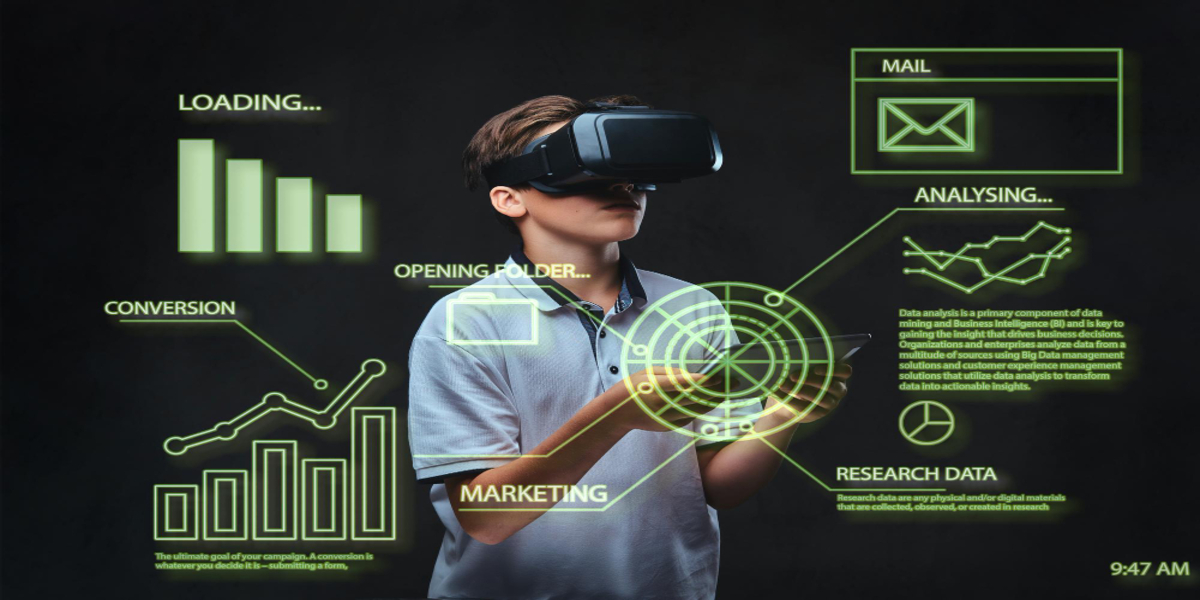How Will AI and VR Revolutionize the Education Sector?
- By Esda Ril
- 29-12-2022
- Virtual Reality

Artificial Intelligence and Virtual Reality are two incredibly revolutionary technologies that were born out of mankind’s relentless push for a digital evolution. Both Artificial Intelligence and Virtual Reality have limitless applications in the business and entertainment sectors. However, when applied correctly, the most impactful applications of AI and VR lie in the education sector.
Artificial Intelligence and Virtual Reality can facilitate the creation of smart education programmes to offer an immersive and interactive learning experience for students. The high-speed internet connectivity made possible by the introduction of 5G in education can boost the adoption of AI and VR in the academic sector.
5G technology in education provides an impetus for institutions of learning to make classrooms more dynamic and sophisticated with the help of Artificial Intelligence and Virtual Reality. The assimilation of AI and VR in schools and other academic institutions can transform education with 5G tech providing a robust connectivity infrastructure for it.
Here are some of the ways that Artificial Intelligence, Virtual Reality and 5G in education can revolutionize how teaching and learning are carried out in academic institutions.
Personalized Learning with Artificial Intelligence
The dynamic and self-improving nature of Artificial Intelligence is perfectly suited to tailor learning programmes and lessons for individual students. This can help create a syllabus and teaching method that carefully caters to the different needs of different people. By introducing Artificial Intelligence into schools and colleges, we can transform education with 5G tech.
Engaging and Immersive Classrooms with Virtual Reality
By allowing students to experience and interact with the subjects and topics, Virtual Reality enhances their attention span by making learning fun and boosting their ability to recollect the information they learn. When exploring new subjects, Virtual Reality offers students a hands-on and immersive experience that textbooks and pictures simply cannot offer.
Virtual Field Trips and Distance Education with Virtual Reality
VR has the potential to maximize the viability of an immersive learning experience for professions such as architecture, engineering, medical procedures and more. Beyond the rudimentary applications of exploration, Virtual Reality and 5G technology in education can together open up many new avenues in the education sector.
Uninterrupted Availability with Artificial Intelligence
Students can have an uninterrupted access to any assistance and guidance they might need with the help of Artificial Intelligence. Adding flexibility to the activity makes learning more accessible, and thereby more inclusive for students by allowing them to have uninterrupted availability to help outside the classroom.
Making Learning More Accessible with Virtual Reality
The benefits of VR to the education sector can also be quaint, yet have the magnitude to change millions of lives. Virtual Reality is a wonderful way to deliver an experience of a lifetime to young students at a modest cost. With VR, students can have virtual field trips to any corner of the world and learn many new things about history, geography, biology, zoology and so much more.
Hence leveraging AI and VR with 5G technology will play a big role in transforming the education sector.


.jpg)
.jpg)
.jpg)
